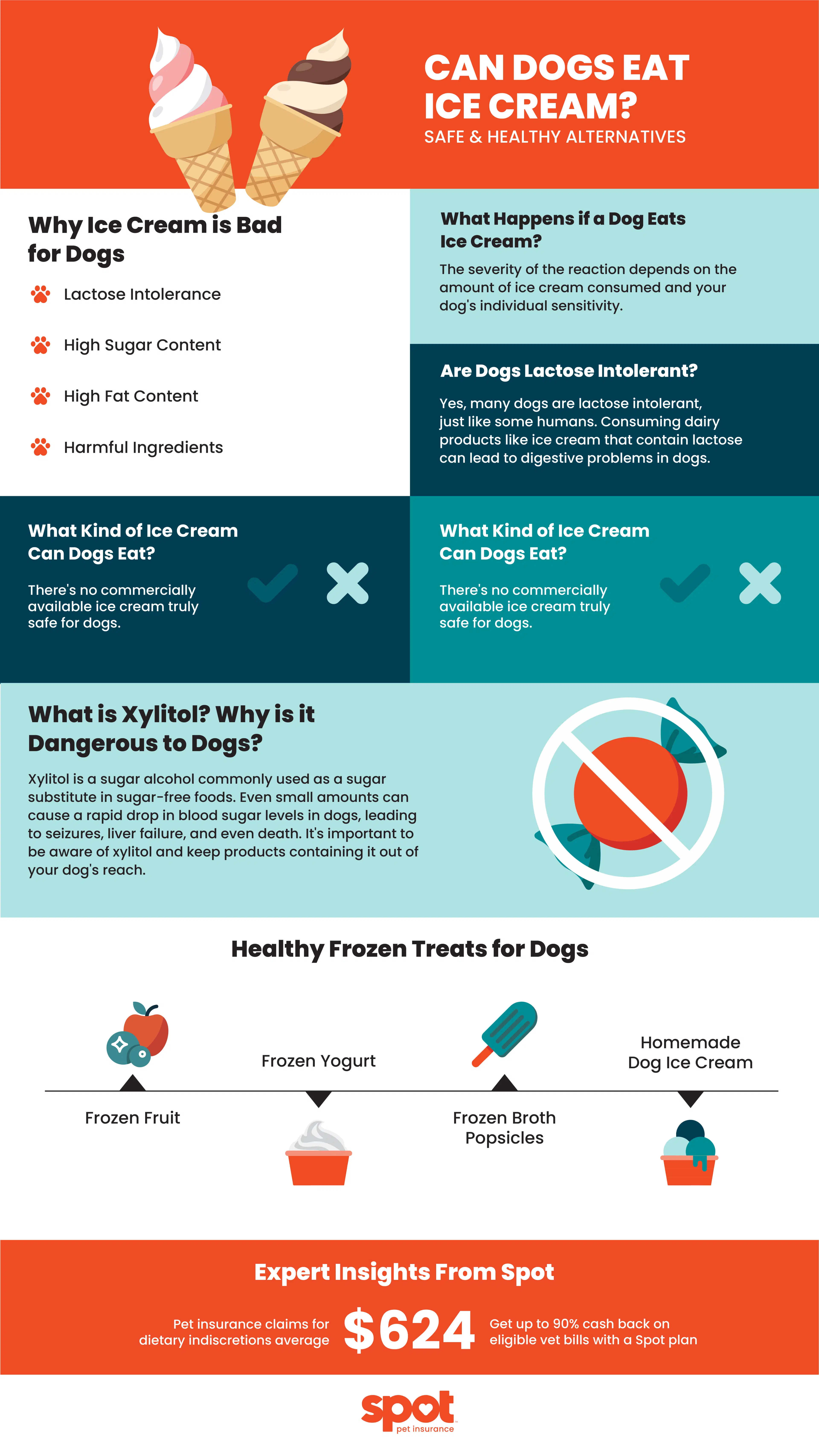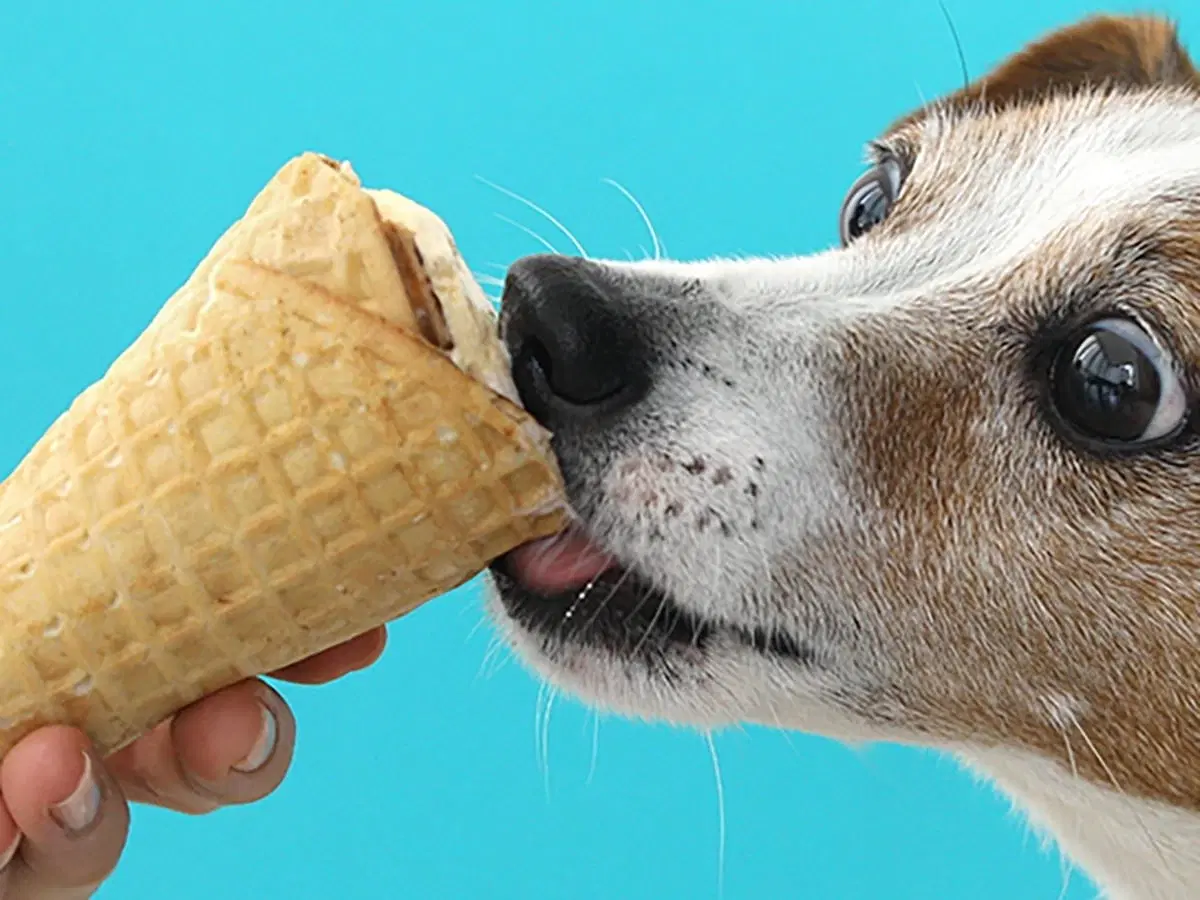Many dog owners love sharing a sweet treat with their furry companions. But ice cream, while tempting, isn't the healthiest choice for our canine friends. Let's delve into why ice cream can be harmful to dogs and explore some delicious and safe alternatives they'll love.
Why Ice Cream is Bad for Dogs
Ice cream might seem like a harmless treat, but it contains several ingredients that can cause digestive issues and even health problems for dogs:1
Lactose Intolerance: Many dogs, like humans, lose the ability to properly digest lactose (milk sugar) after they're weaned. Consuming ice cream can lead to gas, bloating, diarrhea, and vomiting.
High Sugar Content: Excessive sugar intake can contribute to weight gain, obesity, and diabetes in dogs.
Fat Content: The high fat content in ice cream can be difficult for some dogs to digest and may lead to pancreatitis, a serious inflammation of the pancreas.
Harmful Ingredients: Certain ice cream flavors and toppings contain ingredients toxic to dogs, like chocolate, xylitol (a sugar substitute), and artificial sweeteners. These can cause seizures, liver failure, and even death.
Are Dogs Lactose Intolerant?
Yes, many dogs are lactose intolerant, just like some humans. Puppies are born with the enzyme lactase, which helps them digest their mother's milk. However, after they are weaned, their bodies naturally produce less lactase.2 Consuming dairy products like ice cream that contain lactose can lead to digestive problems in dogs.
What Happens if a Dog Eats Ice Cream?
The severity of the reaction depends on the amount of ice cream consumed and your dog's individual sensitivity. Small amounts might cause mild digestive upset like gas or diarrhea. However, larger quantities or ice cream containing harmful ingredients can lead to more serious health problems requiring veterinary attention.3
What Kind of Ice Cream Can Dogs Eat?
"Dog Ice Cream" is rising in popularity and is considered a safer alternative to regular human ice cream for our dogs. It’s a specially formulated treat made for dogs that mimics the taste and texture of human ice cream.1 It's specifically designed to be nutritional and contains easily digestible and low sugar ingredients our dogs love like peanut butter, pumpkin, blueberries, or bananas.
Is Vanilla Ice Cream Safe for Dogs?
While plain vanilla ice cream might seem like the safest option, it still contains lactose and sugar, posing digestive risks. Additionally, some vanilla extracts may contain alcohol, which is also toxic to dogs.
Expert Insights From Spot
Sharing treats with your dog can be a way to show affection, but it's important to prioritize their health and well-being. Internal data from Spot Pet Insurance reveals that dietary indiscretions cost pet parents an average of $642.* Consulting your veterinarian before introducing any new food, including human treats, can help prevent digestive issues and potential vet visits. Learn more about how pet insurance works.

What is Xylitol? Why is it Dangerous to Dogs?
Xylitol is a sugar alcohol commonly used as a sugar substitute in sugar-free foods and products like chewing gum, toothpaste, and some diabetic treats. While safe for human consumption, xylitol is highly toxic to dogs. Even small amounts can cause a rapid drop in blood sugar levels in dogs, leading to seizures, liver failure, and even death.1
It's important to be aware of xylitol and keep products containing it out of your dog's reach. If you suspect your dog has ingested xylitol, seek immediate veterinary attention.
Healthy Frozen Treats for Dogs
Luckily, there are plenty of delicious and dog-safe alternatives to ice cream that will satisfy your pup's sweet tooth:
Frozen Fruits: Freeze blueberries, strawberries, or bananas for a refreshing and nutritious treat.
Frozen Yogurt: Plain, unsweetened yogurt with live and active cultures provides probiotics that aid digestion. Choose dog-safe yogurt with limited ingredients.
Frozen Broth Popsicles: Freeze low-sodium chicken or beef broth in popsicle molds for a hydrating and flavorful treat.
Homemade Dog Ice Cream: There are many recipes online for dog-safe ice cream made with ingredients like bananas, peanut butter, and yogurt.
Key Takeaways
Sharing a tasty treat with your dog can strengthen your bond, but it's important to choose options that are safe and healthy for them. By avoiding ice cream and opting for dog-friendly frozen treats, you can help keep your furry friend happy and healthy for years to come. Remember, a happy pup is a healthy pup!

As Spot’s resident cat enthusiast, I am dedicated to researching and sharing information that helps pet owners take the best care of their pets. Pet ownership comes with it’s share of challenges, but my goal is to help make this journey easier.
*Jan 2019 to Aug 2024 administrator claims data.
"Can dogs eat ice cream?" PetMD, 3 Apr. 2023, https://www.petmd.com/dog/nutrition/can-dogs-eat-ice-cream
Meyers, H. "Can dogs eat ice cream?" American Kennel Club, 2022, Nov. 8, https://www.akc.org/expert-advice/nutrition/can-dogs-eat-ice-cream/
The information presented in this article is for educational and informational purposes only and does not constitute or substitute for the advice of your veterinarian.












